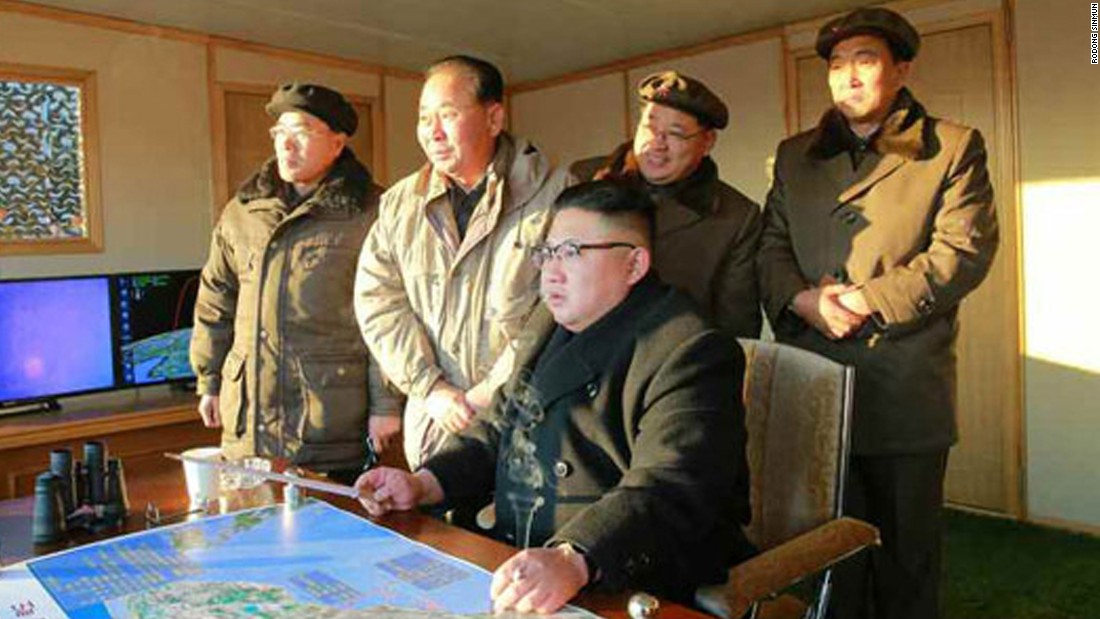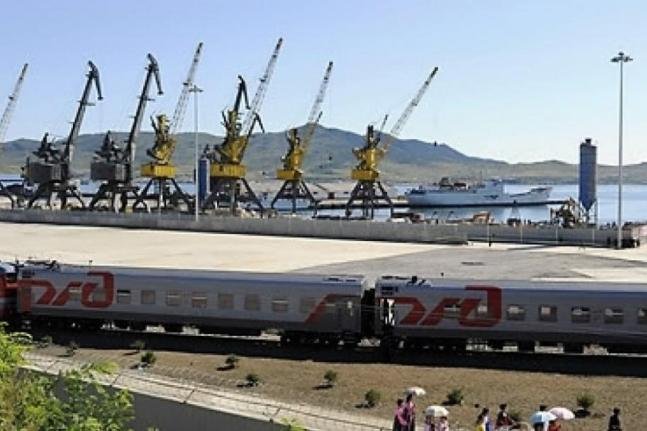Primer: From the 2018 Country by Country Report on Terrorism (in part)
Iran remains the world’s worst state sponsor of terrorism. The regime has spent nearly one billion dollars per year to support terrorist groups that serve as its proxies and expand its malign influence across the globe. Tehran has funded international terrorist groups such as Hizballah, Hamas, and Palestinian Islamic Jihad. It also has engaged in its own terrorist plotting around the world, particularly in Europe. In January, German authorities investigated 10 suspected Islamic Revolutionary Guard Corps Qods Force operatives. In the summer, authorities in Belgium, France, and Germany thwarted an Iranian plot to bomb a political rally near Paris, France. In October, an Iranian operative was arrested for planning an assassination in Denmark, and in December, Albania expelled two Iranian officials for plotting terrorist attacks. Furthermore, Tehran continued to allow an AQ facilitation network to operate in Iran, which sends fighters and money to conflict zones in Afghanistan and Syria, and it has extended sanctuary to AQ members residing in the country.
***
This is the country that Obama and Kerry gave Iran $400 million, the first installment of a $1.7 billion settlement the Obama administration reached with Iran to resolve an old arms deal. This was at the same time that Iran released 4 American hostages while the United States released 7 Iranian citizens and terminated extradition requests for 14 others.
***
Forty years ago, on November 4, 1979, the United States embassy in Tehran was taken over by a group of people calling themselves “Student followers of the line of the Imam.”
Fifty-two U.S. embassy employees and diplomats were taken hostage for 444 days. Years later, the hostage-takers went on to become the most senior officials of Iran’s regime, including Mahmoud Ahmadinejad, former President of the regime. Many of the hostage-takers still hold key positions in the regime. Some were wrongly dubbed as “moderates” by the West despite their loyalty to the regime’s agenda.
Where are the hostage-takers today?

Masoumeh Ebtekar, spokeswoman of the “Student followers of the line of the Imam”:
Masoumeh Ebtekar, also known as “Sister Mary,” was the spokeswoman for the hostage-takers. She vehemently defended the Americans’ detention and demanded to be tried. She is now Iran’s Vice President for women and family affairs. In the first term of Hassan Rouhani’s Presidency, she was also Vice President and head of the environmental preservation organization. In Mohammad Khatami’s administration, she was Vice President and Head of the environmental preservation organization for several years.

Hamid Abutalebi:
He is now Political Advisor to the President. For years, he held top positions in the Foreign Ministry, including the post of Deputy Foreign Minister for political affairs, the regime’s Ambassador to a number of Western countries including Italy, Belgium, Australia, and the European Union (for 15 years). He was previously General Manager of Political Affairs in the Foreign Ministry (for 5 years), Advisor to the Foreign Minister (for 5 years), and member of Foreign Ministry’s Strategic Council. In 2014, he was Rouhani’s candidate to become the regime’s representative to the United Nations in New York, but the U.S. government refused to grant him a visa due to his role in the hostage-taking and in the 1993 assassination of Mohammad-Hossein Naqdi, representative of the National Council of Resistance of Iran (NCRI) in Italy.

Hossein Sheikholislam, council member of “Student followers of the line of the Imam” and member of the team reviewing U.S. embassy documents:
He is now Advisor to the Foreign Minister, Mohammad Javad Zarif. Previously, for several years, he was Deputy for International Affairs to Parliament Speaker Ali Larijani. For 16 years, Sheikholislam was Deputy Foreign Minister for Political Affairs. Subsequently, for three years, he became Iran’s Ambassador to Syria, and after two terms as a Member of Parliament, he became Deputy Foreign Minister for Middle Eastern affairs.

Mohammad-Ali (Aziz) Jafari, one of the plotters of the U.S. embassy takeover:
Until April 21, 2019, for over 10 years, Major General Mohammad-Ali Jafari was Commander of the Islamic Revolutionary Guard Corps (IRGC). He is currently in charge of the “Baqiollah Cultural and Social Headquarters.”

Hossein Dehqan:
IRGC Brigadier General Hossein Dehqan was Iran’s Defense Minister in Rouhan’s first term (2013-2017), and he is now Advisor to the Supreme Leader on Defense Industries and Army Support. From 2004 to 2009, he was Vice President and chairman of the Shahid Foundation (Bonyad-e Shahid), one of the largest economic institutions in the regime.
During Khatami’s Presidency, he was Deputy Defense Minister. Prior to that, he was Deputy Chief of the IRGC Air Force.
After the U.S. hostages were released, Hossein Dehqan joined the IRGC and went to Lebanon. In the years 1982 to 1984, he was in Beirut at the peak of terror attacks in Lebanon, especially massive explosions like the ones at the U.S. embassy and U.S. Marines barracks. He had acknowledged his key role in the formation of Lebanese Hizballah. Based on reports by U.S. media, he had a direct role in the 1983 bombing in Beirut, in which 241 U.S. marines were killed.

Reza Seifollahi, a main plotter of the embassy takeover and member of the central council of the “Student followers of the line of the Imam”:
From 2013 to 2018, Reza Seifollahi was the Political Deputy of the Secretariat of the Supreme National Security Council (SNSC). From 2008 to 2013, He was deputy coordinator of the regime’s Expediency Council. He was a senior IRGC commander, including the commander of IRGC Intelligence. When the Police, Gendarmeries, and Committees (Comite) were all combined into once force, Seifollahi was appointed as the first commander of the State Security Forces (SSF). During Khatami’s Presidency, he was Deputy Interior Minister for Security Affairs.

Habibollah Bitaraf, a main plotter of the embassy takeover and member of the central council of the “Student followers of the line of the Imam”:
From 1997 to 2005, he was Iran’s Energy Minister. From 1986 to 1989, he was the Governor of Yazd Province. Also, for nearly five years, he was Deputy Minister of Energy for Educational Affairs.

Ezzatollah Zarghami
An IRGC Brigadier General, he became head of the state Radio and Television Corporation on the orders of the Supreme Leader, and from 2004 to 2014 he played a key role in the regime’s propaganda machine. For years, Zarghami was the keynote speaker at ceremonies in front of the US embassy in Tehran to mark the anniversary of the embassy takeover.

Alireza Afshar:
After the hostages were released, Afshar joined the IRGC, and he has held important posts in the IRGC ever since, including as Chief of the IRGC General Staff, Commander of the Basij Force and Deputy Commander of the Armed Forces for Cultural Affairs.
In Ahmadinejad’s administration, Afshar was Deputy Minister of Interior for Political and Social Affairs.
He is now head of the Supreme Delegation for the IRGC School of thought.

Mohsen Aminzadeh:
During Khatami’s presidency, Mohsen Aminzadeh was Deputy Foreign Minister for Asian Affairs. He was a shadow minister when Kamal Kharrazi was Foreign Minister.
Hossein Sharifzadegan:
During Khatami’s second term as President, Sharifzadegan was a member of “the Islamic partnership front” and General Manager of the Social Security Organization and Minister of Social Security.
Mohammad Mehdi Rahmati:
During Ahmadinejad’s Presidency, Rahmati was in charge of President’s Office of Planning and Strategic Oversight
Mohammdreza Behzadian-Nejad:
In the first term of Ahmadinejad’s Presidency, Behzadian-Nejad was Deputy Interior Minister for Economic Affairs. Later, he became head of the Commerce Office of Tehran.
The seizure of the U.S. embassy in Tehran marked the beginning of the regime’s policy of hostage-taking and international blackmail, a policy that has become official and institutionalized as part of the foreign policy of this regime.
For 40 years, the foreign policy of the mullahs’ regime has been rooted in terrorism and blackmail. Today, it is recognized as the world’s main state sponsor of terrorism. In the past 40 years, there has never been a time that this regime has not held onto hostages. Still, under different pretexts, Americans and other countries’ citizens are kept in the Iranian regime’s prisons as hostages.
In the past 40 years, thousands of innocent people have fallen victim to the regime and its proxy groups’ terrorism in the Middle East, Asia, Africa, and even Latin America.
Terrorism and hostage-taking are a part of the DNA of Iran’s regime.
The 1979 U.S. embassy takeover, which later was dubbed by regime officials as a ‘revolution greater than the 1979 revolution,’ had the goal of eliminating Iran’s democratic forces, and more specifically the People’s Mojahedin Organization of Iran (PMOI), or Mujahedin-e-Khalq (MEK) from the political scene. Khomeini, the regime’s Supreme Leader at the time, supported the act of the students, and Khamenei the current Supreme Leader, who at the time was Friday prayers’ leader and Khomeini’s representative, was one of the main supporters of the takeover; he went to the embassy and encouraged the students.
It is no surprise then that just last week Khamenei, through his representative in the state-run Keyhan newspaper, called on regime-backed Iraqi militias known as the “Hashd al Shaabi,” who are under the command of the IRGC Qods Force, to take over the U.S. embassy in Baghdad by the same model that took place in Tehran 40 years ago.
Hossein Shariatmadari, editor and representative of the Iranian regime’s Supreme Leader in Kayhan, in the paper’s October 30, 2019 editorial called for the takeover of the U.S. Embassy by the Iraqi militias.
Shariatmadari, whose words reflect Khamenei’s opinions, wrote: “In a previous note, by mentioning the takeover of the U.S. embassy in Iran, which the Imam called the “second revolution,” the issue was raised in the context of a question that why the Iraqi revolutionary youths … are not ending the presence of the U.S. embassy in Baghdad, which is the epicenter of conspiracy and espionage against the innocent people of Iraq!? And why are you not eliminating and throwing out this infected wound from your holy land? The takeover of the U.S. espionage center in Islamic Iran and eliminating that epicenter of conspiracy had many benefits for us. So why then are the revolutionary youths of Iraq depriving their holy land from these benefits?”


 (in full disclosure, I have done several interviews with former DEA Special Agent, Derek Maltz on Operation Cassandra)
(in full disclosure, I have done several interviews with former DEA Special Agent, Derek Maltz on Operation Cassandra)

